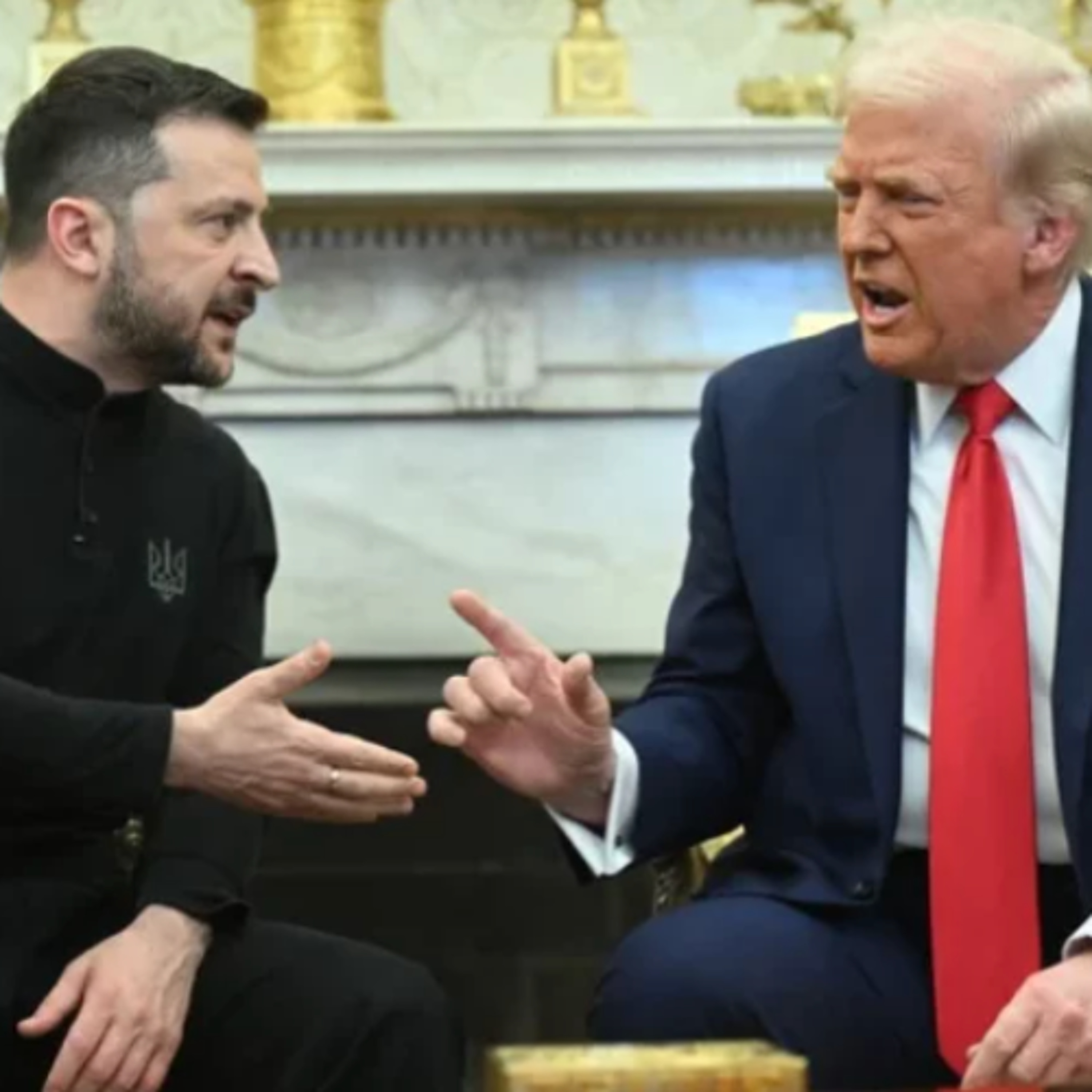
Excerpt - Ambushed in the Oval Office? w/Richard Seymour
Politics Theory Other
Deep Dive
Shownotes Transcript
So on sort of left social media, it's quite common to see people downplaying the significance of what happened at the White House and more generally arguing that the novelty of the second Trump presidency is massively overstated and that we see plenty of continuity with Biden and earlier administrations and that Trump and Vance are merely saying the quiet parts out loud and that what we're witnessing is just a more unvarnished articulation of actually quite conventional US foreign policy.
And, you know, obviously there's reason to have some sympathy for that perspective, because it is indeed pretty enraging to see liberal commentators suddenly discover that the United States bullies weaker actors in the world system, or to see them claim that there's something hugely novel in the US allying with repressive authoritarian regimes. And all of this, of course, is in the context of Biden's support for an enabling of the Gaza genocide.
But at the same time, it does seem a bit obtuse to watch what happened at the White House or to see the US openly allying with Russia against Ukraine at the UN or to see J.D. Vance's speech at the Munich Security Conference and respond with, you know, same as it ever was, nothing new to see here. You know, what's your view on what's truly novel here and what isn't?
Well, in terms of this stuff about saying quiet part out loud and all the rest of it, there's an element of truth in that, obviously. Do you remember Hitchens' book about Cyprus, where he describes an interaction between Lyndon Baines Johnson and the Greek ambassador over proposals for the island and Greeks have said no. Johnson says, well, fuck your parliament and your constitution.
He says America's an elephant, Cyprus is a flea, Greece is a flea. If these two fellows continue itching the elephant, they may just get whacked by the elephant's trunk. Whack good. And he goes on in that vein. So, I mean, I think it's partly a matter of style how one presents the threat or the humiliation, but it's always there. That's what it is to be an empire. But as to this idea that this is just continuity imperialism, I think that's rubbish.
First, this is transparently part of a pivotal way from a desiccating global liberalism, away from that global order. And Vance and Rubio and others have been saying that this no longer works, that we're in a multipolar world, and that global order is now being used against America. America First is basically withdrawing from global ambition in a particular way. For example, the message from a lot of Trump supporters has been,
"Your continent, your problem." You know, "We tried our best, you didn't do anything." Basically saying, "Let Europe handle it." Now, if you're an empire, you really can't afford to say that another continent is not your problem. America First involves basically saying, "Look, we're not that bothered about grand notions of strategic control of this or that space, the post-Soviet space. We're concerned more about tangible gains like, for example, accessing Ukraine's mineral reserves."
So they have an extremely crude, short-term sense of rail politic, of the national interest, and of kind of transactional politics, where we're not trying to create a global framework in which people will come to spontaneously depend on us and emulate us or do what we say. We are going to interact with people on the basis of what can you offer us?
America would end up being a world power, a powerful imperialism, but definitely not a hegemon. That's a big shift. If you'd like to hear the rest of this episode of PTO Extra, then please consider becoming a £5 supporter of this show on Patreon. Go to patreon.com forward slash polltheoryother to sign up.